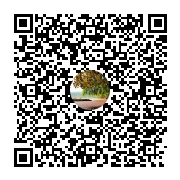一、一般过去时与现在完成时的用法比较。
1.“一般过去时”所关心的是过去之事,与现在无联系,常带有表示过去某个时间的状语;现在完成时所关心的是过去发生的事,与现在有影响和联系,对现在产生某种结果;现在完成时强调过去与现在的联系,语句译成汉语后常常带有“已经……了”或“……了”的含义。
A.I ________(lose) my pen.Can you lend me yours?
B.Why don't you buy one?
A.It _______(fall) into the river only a moment ago when I washed my hands. Now I've got to fill in a form with a pen.
2.现在完成时与for或since引起的短语连用时,表达从过去开始的动作或状态延续至今,而一般过去时与“for+一段时间”连用时,只指过去的动作或状态在过去延续了多长时间。
We___________(stay) here for three weeks. I think we are going to stay another two weeks.
(说话时人还在)
He __________(stay) here for three weeks last year.
(并不表示现在是否在)
3.一般过去时带有表示过去某时刻的时间状态,如yesterday,last year(month,week,night),in 1980…
eg. When _____you_______ (come)?
I ______(come) the day before yesterday.
4.现在完成时所带时间状语包含说话时在内,如today,this week(month,year),these days(years)或与说话时非常接近,如recently,just,in(during) the past three years。
eg.I___________(learn) over three hundred words this year.
Great changes _______( take) place in the last ten years.
1.Oh,what______(happen)?Why is there so much blood on the playground?
Your father ________(kill) a cock just now.
2.I'm so glad that you _______(make) such good progrcess this term.
3.I saw an Englishman on my way home.
________ you ________(talk) to him?
No.He was speaking to a policeman.
4.Last year I went to study medicine in a university in Japan.
How long ______ you _____(study) there?
5.Being very angry,he ____(beat) the table and ____(say) some rude words.
二、一般过去式与过去完成时的区别。
1.一般现在时表示过去某一时间内发生的动作或存在的状态,而过去完成时则表示过去某一动作或时间之前发生的动作或存在的状态。 一般过去时与现在相比,强调“过去”,而过去完成时则与过去相比,强调“过去的过去”。
我们来比较下列句子:
The meeting _________(start) at six o'clock.
start的动作发生在at six o'clock。
The meeting ___________( start) when we arrived at the hall.
start的动作发生在过去的动作arrived之前。
2.过去完成时可表示过去某个时间之前开始的动作或状态的延续,与since或for引导的时间状语连用。
He ___________( work) in the month for
[1] [2] 下一页
ten years before he came to our school.
本句中 work 的工作状态延续了ten years,直到before he came to our school为止。
He ________( be ) ill for weeks when he asked for sick leave.
She told me she always_________( work in the countryside since she graduated from a college.
本句中 work in the countryside的工作状态自graduated from a college开始,一直延续至she told me的时候。
3.在一段情景连贯的文字中,先发生的事放在后面叙述时,要用过去完成时。
She felt helpless,not knowing what to do. Her husband _________( die ) and left her no money.
她觉得孤立无援,不知所措,她丈夫去世了,没留给她财产。
在本句中,she felt helpless…发生在过去,而 die 则发生在felt helpless之前。
4.表示过去未实现的希望、计划、打算或原本的想法时用过去完成时。常用的动词有think,suppose,hope,want,expect,plan等。
I ____________(think) he had died.
我原以为他已死了。
They _________(want) to catch the first bus,but they didn't get up early enough.
他们本想赶头班车,但起得不够早。
5.在宾语从句中,所叙述之事虽发生于主动词之前,但从句中有一个确定的表示过去的时间状语时或叙述的是历史事实时,从句中时态用一般过去时。
The teacher said that Columbus ________(discover) America in 1492.
老师说哥伦布在1492年发现了美洲。
句中的discovered发生在said之前,但不用过去完成时had discovered。
6.叙述过去发生的一连串的动作或事件用and或but连接时,用一般过去时。
He ________(get) up, ________(dress) himself and then _________(go) downstairs to have breakfast.
他起身穿好衣服,然后就下楼吃早饭。
He ___________(buy) a volleyball but later _____(lose) it.
7.当主动词与宾语从句中谓语动词同时发生时,从句谓语动词用一般过去时或过去进行时。
He said he ________( know )several languages.
他说他懂好几门外语。
He was not sure what they _________( do ) at that time.
上一页 [1] [2]













